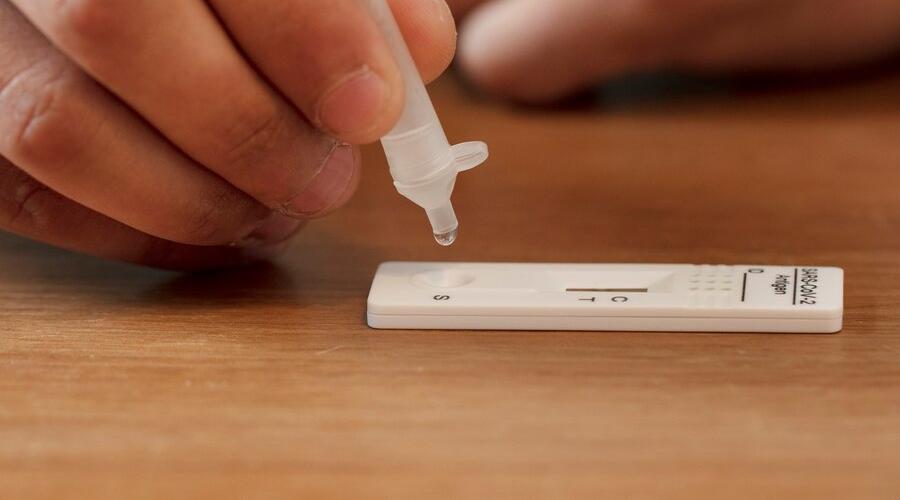
In an era where sexual health is paramount, STD awareness and testing have become crucial components of a responsible and informed lifestyle. As the discourse around sexual health evolves, concerns about STIs and their potential transmission through oral sex have taken center stage.
We’ll delve into the landscape of comprehensive STD testing in Southington, CT, shedding light on the intersection of STIs and oral sex, the need for comprehensive testing, the role of testing centers, available testing facilities, and the importance of regular testing.

Sexually Transmitted Infections (STIs) are a group of infections caused by various microorganisms that can be transmitted through sexual contact. These infections pose significant health risks and can lead to serious complications if not detected and treated promptly. As part of a comprehensive approach to sexual health, STD testing in Southington, CT, and awareness are vital components, especially in a community like Southington, CT.
STIs encompass many infections caused by bacteria, viruses, and parasites. These infections can affect various body parts, including the genitals, mouth, throat, and rectum. Some of the common types of STIs include:
STIs can be transmitted through various modes of sexual contact, including vaginal, anal, and oral sex. Understanding these modes of transmission is essential for preventing the spread of infections through STD testing in Southington, CT:
In this regard, STD testing in Southington, CT, is central to promoting sexual health and preventing the spread of infections. Regular testing empowers individuals with knowledge about their STI status, enabling them to take appropriate actions to protect their health and the health of their partners.
Like many other communities, Southington, CT, faces the challenge of addressing common sexually transmitted infections that can be transmitted through oral sex. Some of the most notable STIs include:
Understanding the symptoms, complications, and long-term effects of STIs transmitted through oral sex is vital for individuals in Southington, CT, to prioritize their sexual health. Prompt diagnosis and treatment can mitigate the potential risks associated with these infections.
STI | Symptoms | Complications and Long-Term Effects |
Herpes | Painful sores, blisters, or ulcers around the mouth | Lifelong infection with the potential for recurrent outbreaks; manageable with antiviral medications |
Gonorrhea | Sore throat or swollen tonsils (may not always show symptoms) | Pelvic inflammatory disease (PID) in women; epididymitis in men |
Syphillis | Progresses through stages: sores, rashes, fever | If untreated: neurosyphilis, cardiovascular issues, organ damage |
HPV | May not show any symptoms initially | Can lead to the development of oral cancers; regular testing can allow for early detection and medical intervention |
Comprehensive STD testing in Southington, CT, is crucial in addressing STIs related to oral sex. Regular screenings can detect these infections early, enabling individuals to seek prompt medical care and prevent potential complications. By raising awareness about the risks, symptoms, and long-term effects of STIs transmitted through oral sex, the community can work together to prioritize sexual health and well-being.

Regular testing and routine check-ups are fundamental to maintaining good sexual health and preventing the spread of sexually transmitted infections (STIs). In Southington, CT, access to comprehensive STD testing in Southington, CT, serves as a vital resource for individuals to take charge of their sexual well-being. By understanding the significance of consistent testing and integrating routine check-ups into their lifestyle, residents can ensure their health and that of their sexual partners.
Regular STD testing in Southington, CT, is essential, especially for sexually active individuals, to promptly detect and address potential infections. The testing frequency can vary based on individual factors, including the number of sexual partners, the type of sexual activity, and personal risk factors. Facilities for STD testing in Southington, CT, offer various tests to accommodate different needs. Some guidelines for testing frequency include the following:
Incorporating routine STD testing in Southington, CT, into one’s health care regimen is a proactive approach to overall well-being. Residents can prioritize their sexual health by viewing regular check-ups as part of their healthy lifestyle. Just like visiting a dentist or an eye doctor, regular STD testing in Southington, CT, should become a normalized aspect of healthcare. Benefits of routine check-ups include:
Open communication about STD testing in Southington, CT, with sexual partners is a responsible and respectful practice that fosters trust and transparency. Southington, CT, emphasizes the importance of discussing testing to create a safe environment for honest conversations. Some key points to consider:
Facilities for STD testing in Southington, CT, provide a safe and confidential space for individuals to prioritize their sexual health. By recognizing the importance of regular testing, routine check-ups, and open conversations with sexual partners, residents can contribute to a healthier community and a brighter future for all.

Promoting comprehensive sexual health education, emphasizing the proper use of barrier methods, and encouraging open communication with sexual partners are pivotal strategies in preventing transmitting sexually transmitted infections (STIs). In a town where STD testing in Southington, CT, is readily available, integrating these preventive measures into one’s sexual practices can significantly contribute to individual and community well-being.
Education is the foundation of promoting safer sex practices and raising awareness about the importance of STD testing in Southington, CT. Providing accurate and accessible information empowers individuals to make informed decisions regarding their sexual health. Key components of effective sexual health education include:
Barrier methods, such as condoms and dental dams, effectively reduce the risk of STI transmission during sexual activities. Proper usage and consistent application of these methods can help individuals protect themselves and their partners. In Southington, CT, emphasizing the correct use of barrier methods can contribute to a culture of responsible sexual behavior.
Open and honest communication is a cornerstone of healthy sexual relationships and significantly prevents STI transmission. Encouraging individuals in Southington, CT, to engage in open conversations with their sexual partners about sexual health and testing is crucial for creating a safe and supportive environment.
In Southington, CT, and beyond, integrating education on safer sex practices, promoting proper barrier method usage, and encouraging open communication with sexual partners are essential steps toward preventing the transmission of STIs. By combining these preventive measures with regular STD testing in Southington, CT, individuals can take proactive control of their sexual health and contribute to a thriving, informed community.
Prioritizing sexual health through comprehensive preventive measures and regular STD testing in Southington, CT, is paramount for individual well-being. We encourage you to take charge of your sexual health by considering DOCS Urgent Care – Southington for your STD testing needs. If you’re ready to take the test, schedule an STD testing appointment with us today and take control of your well-being.

During this surge in COVID-19 cases, our primary focus is meeting the high demand for tests, and we are seeing higher than usual wait times. This means we are unable to answer most phone calls. Please know that our teams are working very hard during this time to care for as many patients as safely as possible. Please click the button below for answers to common questions. We appreciate your understanding.